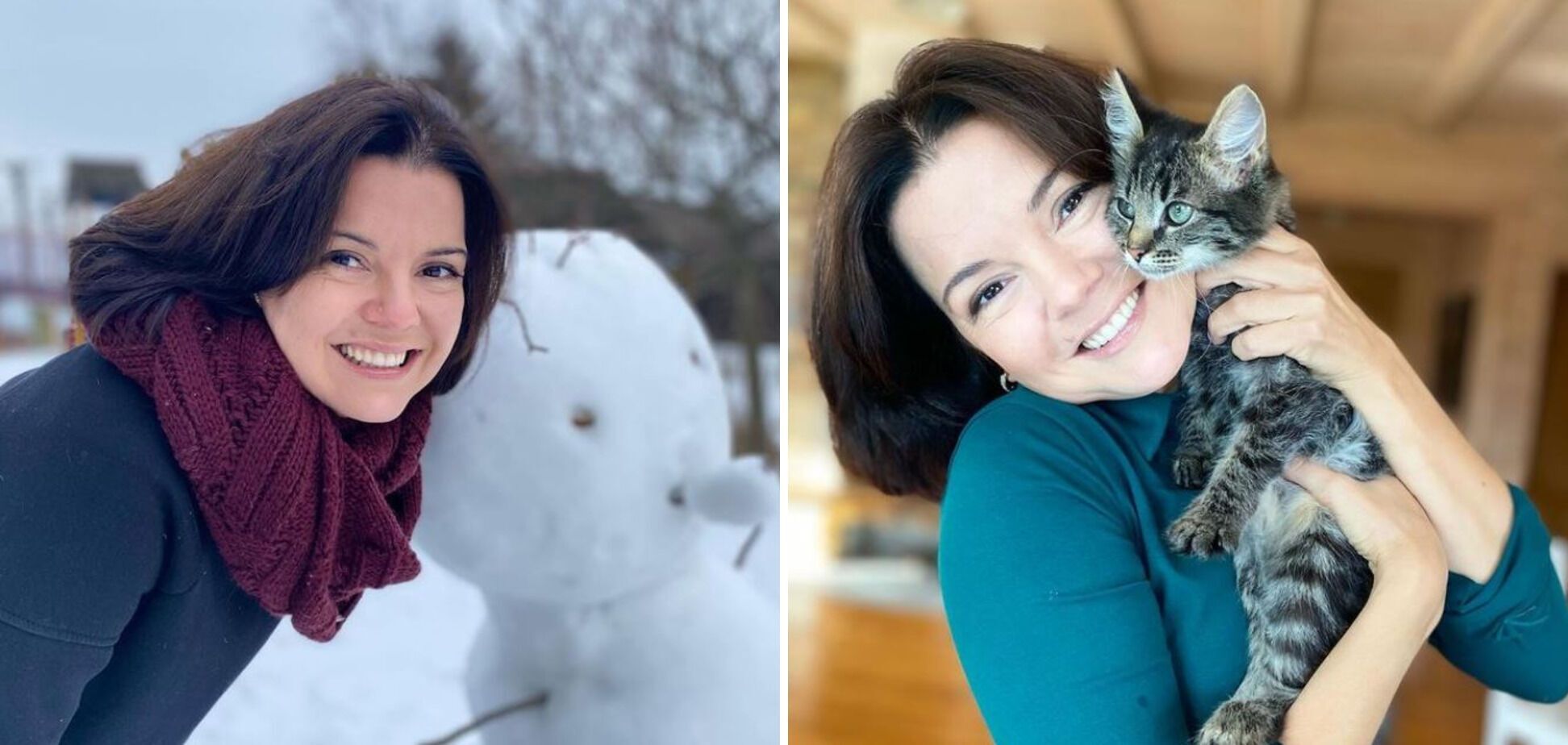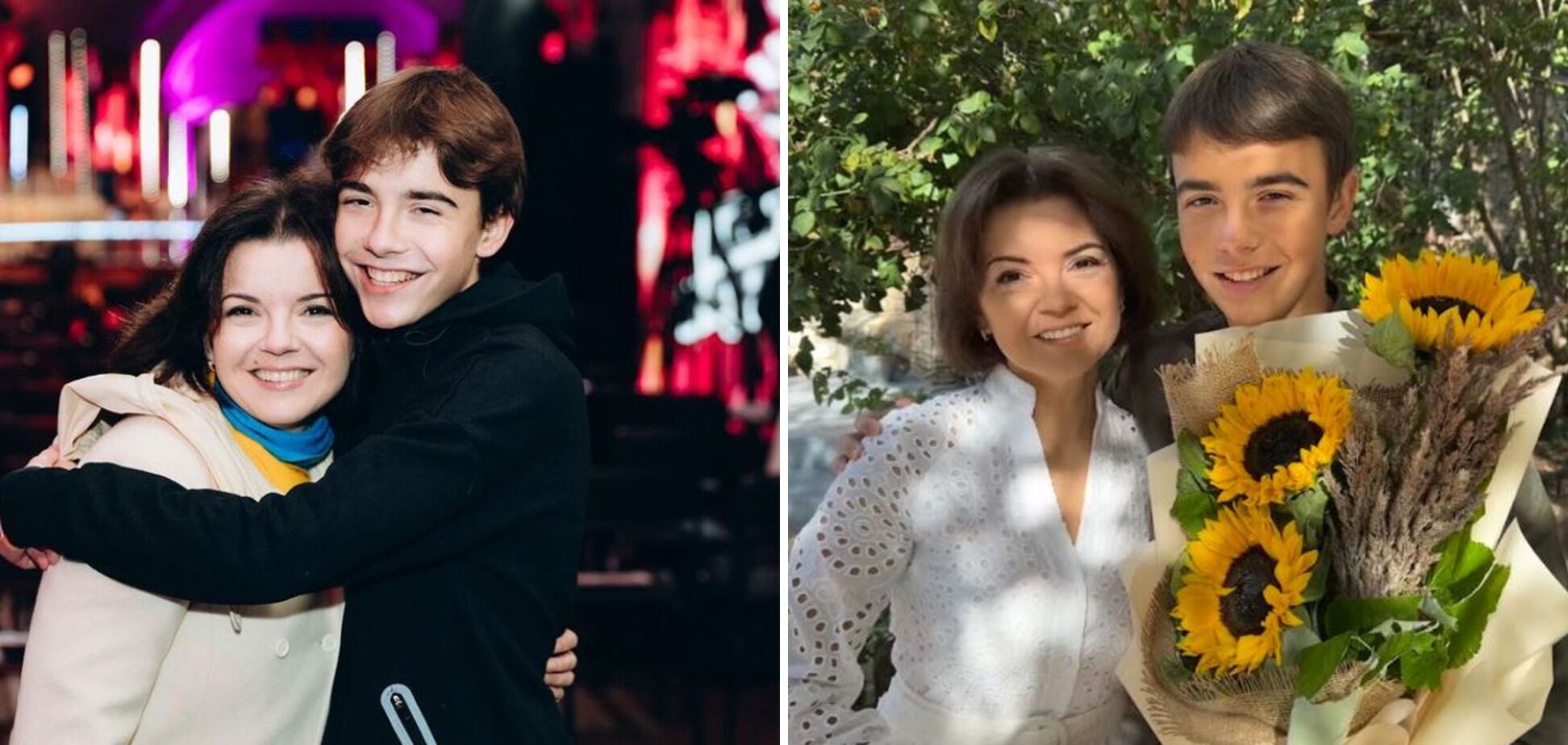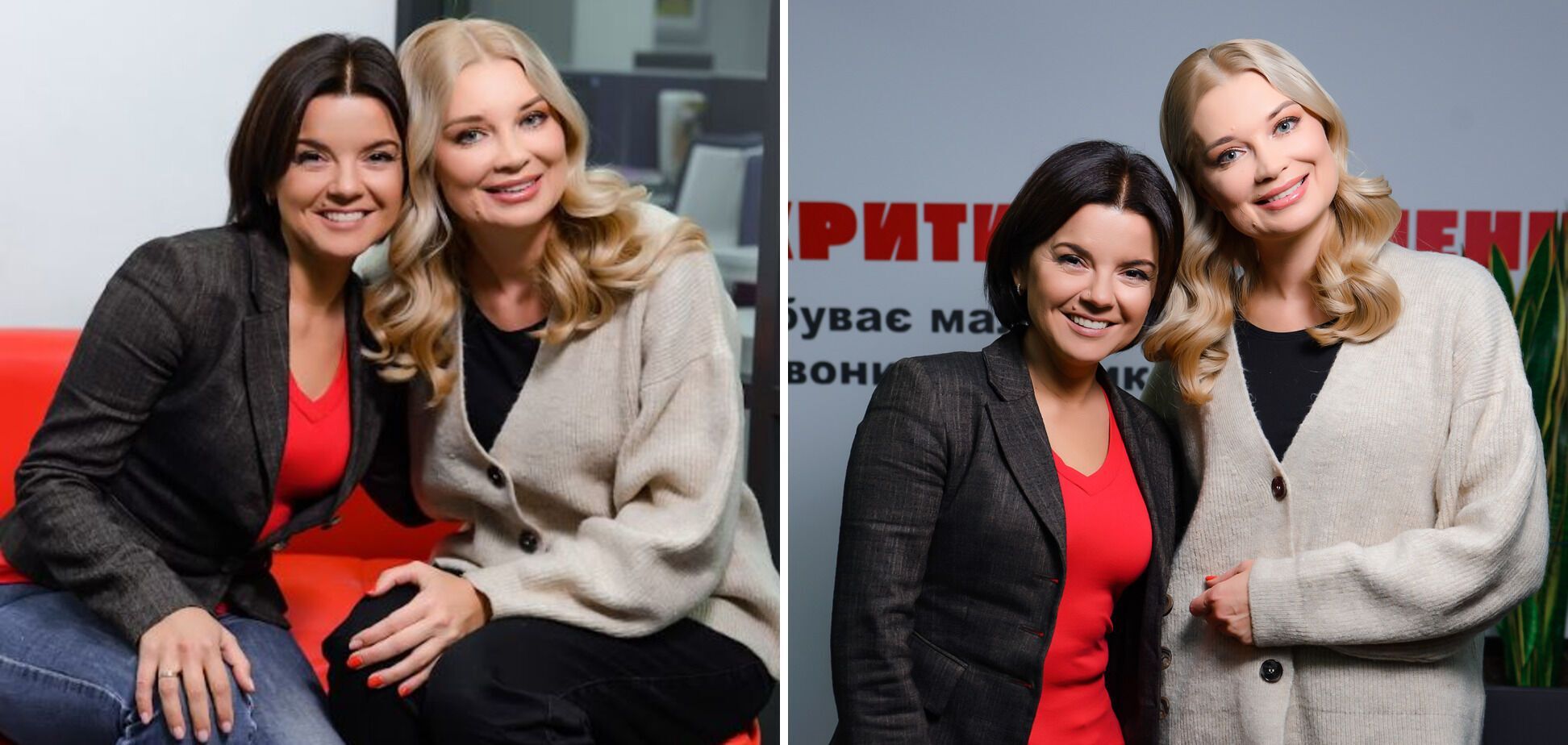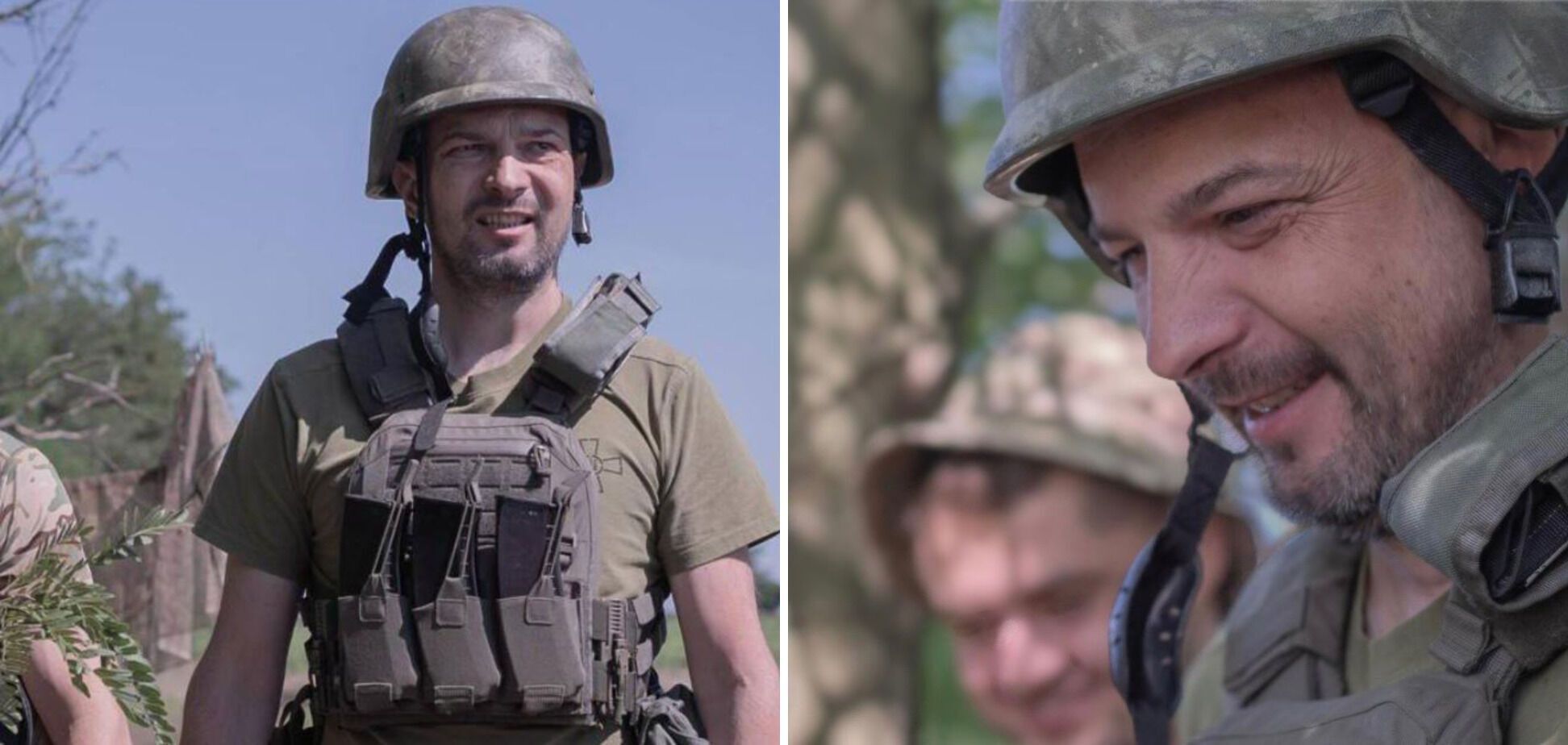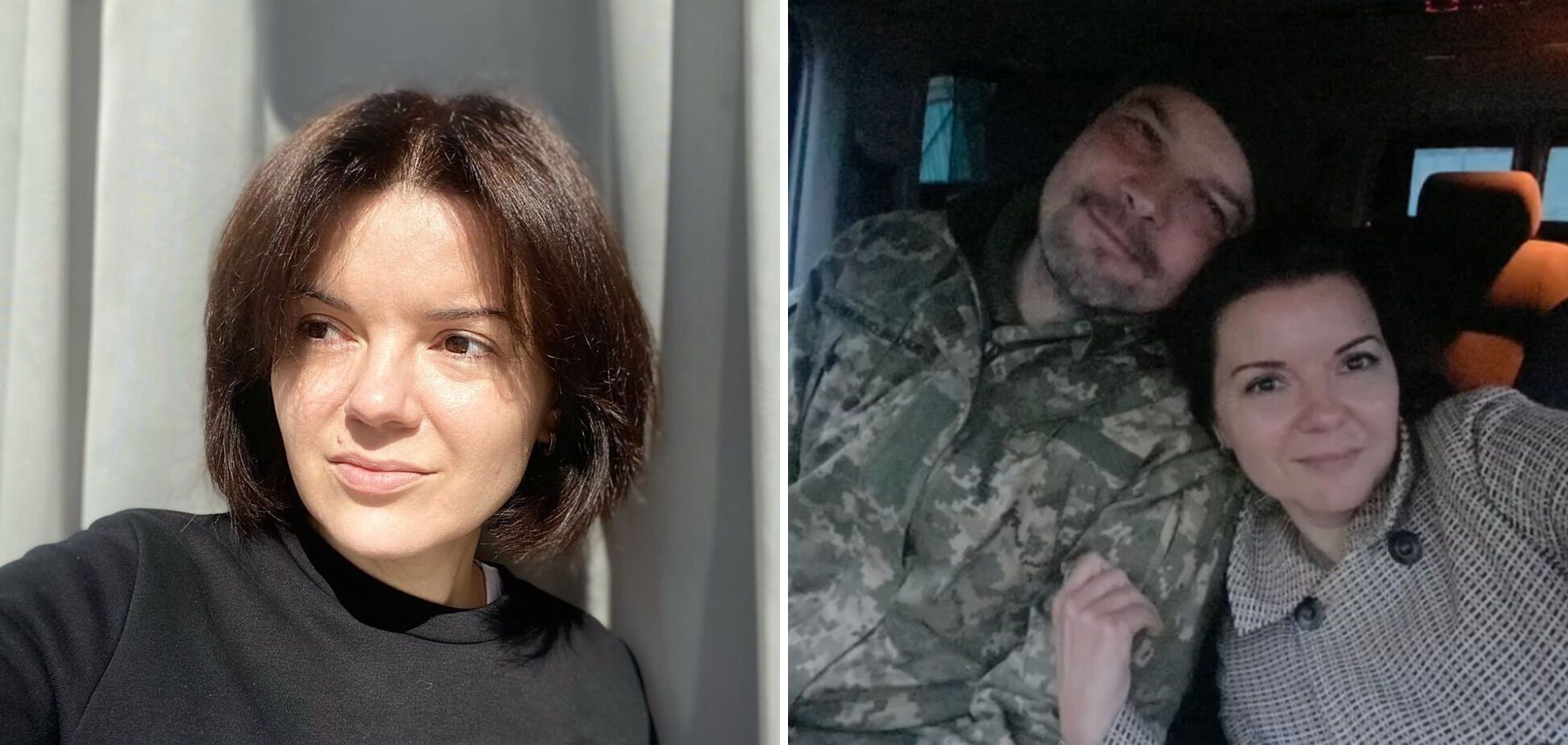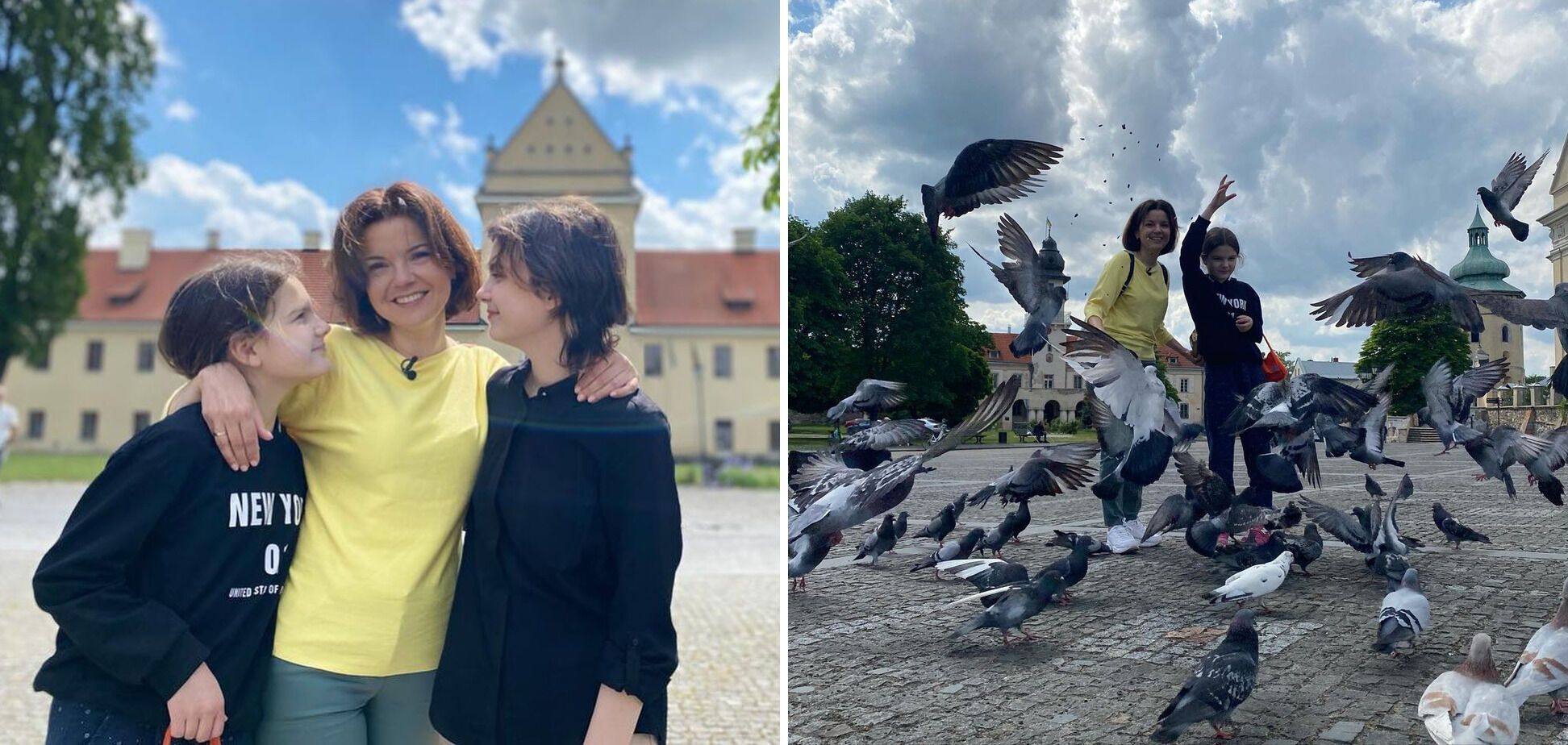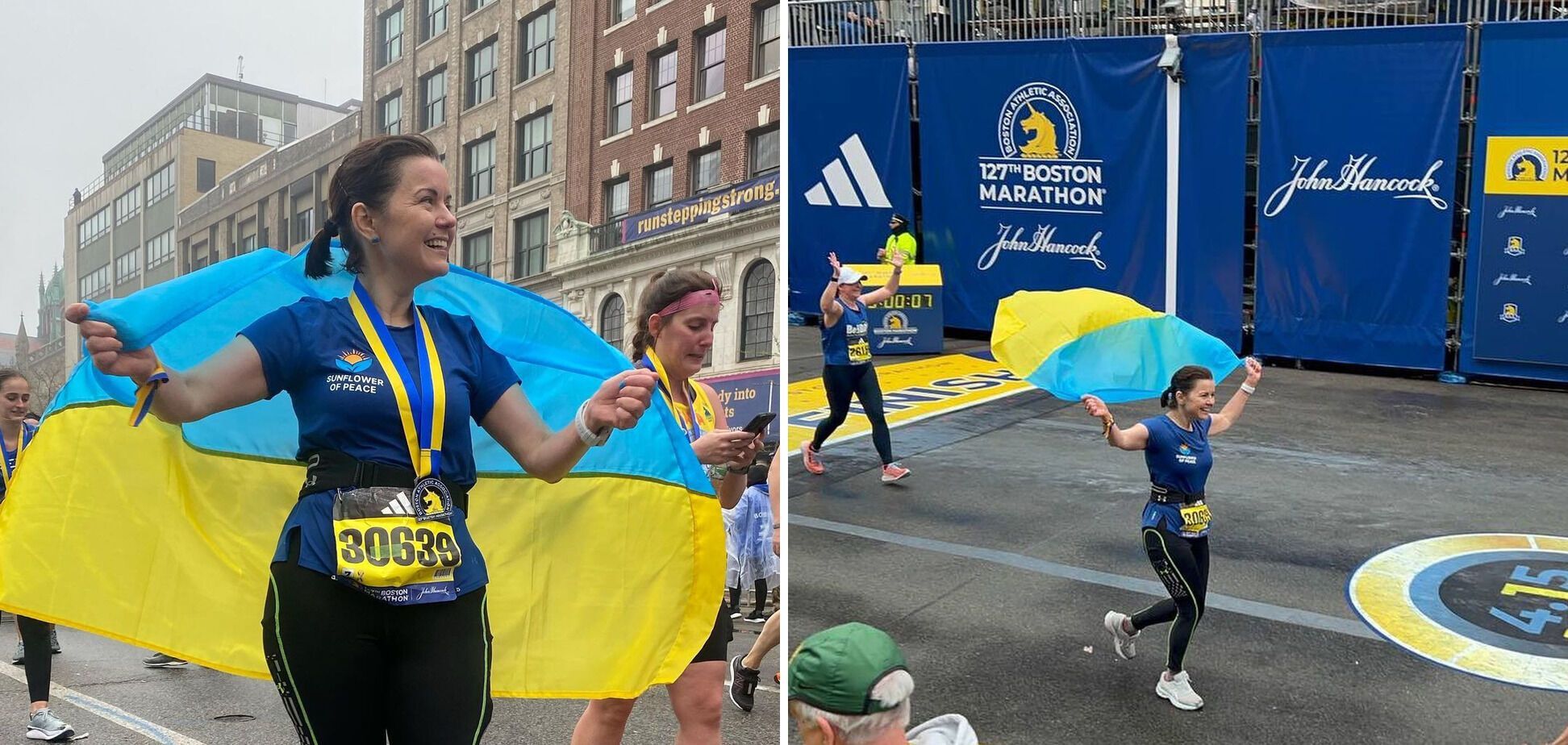Entertainment
"There are no plans for ending the war soon": famous TV presenter Marichka Padalko on her daughters abroad, changing profession and relationship with her military husband
Marichka Padalko, host of the 1+1 Ukraine TV channel and the United News marathon, told us how the great war changed her family's life. The TV presenter's husband, former MP Yehor Sobolev, is currently at the front, her daughters live abroad, and her son, who is finishing school, has become a public activist.
In a conversation with OBOZ.UA, the TV presenter admitted why one of her daughters had to look for a psychologist and why Marichka herself needed professional advice from a specialist sometime later.
- Marichka, the war has been going on for two years now, where do you get your strength in this difficult time?
- It depends on the situation. When I need to be sad, I allow myself to do so and don't feel guilty. But I have a rule: start over every day. I leave what happened yesterday and what I was unhappy with, for example, my appearance or some comments, yesterday. I start a new day with the thought that everything will be fine today.
Physical activity - sports, running - has always helped me a lot. But in the fall, it somehow became very difficult as I realized that I couldn't even get ready for a run. Now I do running training three times a week with a coach. Plus I jog on my own every Saturday. When I have a group and a trainer, I feel better emotionally, although it's not easy physically as I have to go from the right bank to the left bank to train when everyone else is returning home.
- In an interview, you said that running helps you keep your autoimmune disease under control (the TV presenter has chronic thyroid inflammation - Ed.)
- You know, I've gotten so used to this disease that I don't think about it. It is what it is. I perceive it as a way of education as like any chronic disease, it obliges me to lead a more or less correct lifestyle. I have to try to get enough sleep, eat well, and not abuse junk food. This disease makes me do tests and screenings, as well as check my condition more often.
- What has the war taught you?
- To appreciate every day and find joy even in the smallest details. In general, I was capable of this before. But now this ability and the realization of how important it is have been strengthened by the war. Plus, my children have become even more aware of what country they belong to and where they will live. I don't think they had such a strong understanding that their future is here before.
- Where do your children live now? There was information that you found your daughters a temporary refuge from the war in Prague.
- They were in Prague for a year, and now they've come back for the winter vacation. They study at one of the best European schools, and there is a similar international school in Kyiv, but we cannot afford to send them to such a school here. They have free housing there. And they proved themselves so well that they received a scholarship for this year. However, Maria and Katia have different ways of dealing with life abroad. Therefore, Maria, who is now 15 years old, will finish the first semester there by the end of January and return to Ukraine early, although she was supposed to finish the school year. This is her decision. She says that she has a full life here. The younger one will finish her studies by the end of the school year and return in the summer.
Mykhailo is with me in Kyiv, finishing the 11th grade. He is very interested in all civic activity in Kyiv, he is concerned about what is happening in Ukraine. He goes to protests near the Kyiv City State Administration with a poster "Money For The Armed Forces". He wants to enter Mohylianka Academy because he really likes the environment. Plus, there are Saturday rallies near the city council, where a lot of residents of the area come. Still, he hasn't decided which faculty he will go to yet.
- How do you cope with being separated from your daughters when they are not with you?
- Whenever possible, I visit them for a few days at least once every five to six weeks. It's a long way, you know how it is. You spend a day traveling by train and then the same way back, but I got used to it. However, despite the fact that I tried to come more often, we had to seek help from a psychologist.
- How did you feel about Maria's decision to return to Ukraine?
- She announced it to us back in the summer. We tried very hard during these six months to change something. But everyone, even the psychologist, came to the conclusion that she had to come back. It was not easy for us to accept, especially for Yehor, because he put a lot of effort into making this happen. It was his idea. But yesterday, Maria went to her native school - a regular, state school - and came home very happy. I understand that this is an emotional perception. I haven't seen her so happy for a long time. At least for the last six months for sure.
- Do you keep in touch with Lydia Taran, Mykhailo's godmother, who now lives with her daughter in France?
- Of course! She is studying for a university degree in French, which is such a feat for me. I once tried to start learning French, but it was very difficult. Although I'm a philologist and also studied English and German. I admire my friend for pushing herself so hard. I don't want to talk about our age, but you must admit that languages at school are much easier than starting over in another language. Lida is a great woman.
I don't know which country she is going to choose for her future life: you'll have to ask her. You know how it often happens: life is tied to the child. Higher education in French is free, and this may be a prospect for her daughter, who is now in the 10th grade. But I think Lida will come to visit us from time to time.
- You mentioned that you are a philologist by profession, but you changed your life dramatically by becoming a TV journalist. What advice would you give to people who, like you, are now learning a new profession because of the war?
- It seems to me that the thesis "start all over again" will apply to many people now, even those who have no reason to do so. It is important for everyone between the ages of 20 and 50 to work on the skill of "starting over" because the world is changing a lot these days. Even in the last five years, professions that seemed to never go away have been disappearing. Take a simple example: a cashier. In the past, you could often hear someone say, "If I don't have a job, I'll be sitting at the cash register." But now we see that only a few people work at cash registers in supermarkets, and everything else is self-service.
Soon, some artificial presenters will be doing the news. Therefore, we need to keep in mind that we will have to start all over again more than once. I am one of those people. It's not a tragedy, it's a test that will give us more strength and more confidence in the future. If I were looking for a new job, I would probably choose something related to communications. There is a great demand for it now, especially when it comes to international communications with knowledge of several languages. I think I could realize myself well in this field.
- Every evening, like many other Ukrainians, I read your posts on Instagram, in which you briefly summarize the day. It's such a great idea!
- The idea was not mine but my husband's. I personally didn't see the need for it, it seemed that everyone in our country follows the news and everyone knows everything. When he left the de-occupied Irpin in April 2022, he said that there was a lack of resources to visit for five minutes and understand what was happening. The reason was that mobile communication was very limited or even prohibited. My husband convinced me that I should do it. To be honest, it's not easy. Sometimes there is no news, and sometimes you have to write about things you don't want to write about.
- Marichka, if we compare the time when your husband Yehor Sobolev took part in the liberation of the Kyiv region and now, when he is serving as an officer at the front, when was it at least a little bit easier for you?
- It is easier now. It is difficult, but everything is not so acute anymore. We all remember the missiles flying at Kyiv in 2022 and now at the end of 2023. They have not become less powerful, but you cannot be afraid every time. When you worry about your husband, you realize that the danger has not disappeared, but you have to believe in the best. You can't afford not to sleep or eat as I did when he was in Irpin.
- How did you accept the fact that now you have to take on many of the responsibilities you shared with your husband?
- I think I took on this role too responsibly. I even developed a habit from last year: every time Yegor left us, I perceived it in my heart as if he no longer existed with us. Not because I didn't want to think about him. I acted as if I was completely alone. And I have to rely only on myself. A psychologist later explained to me that this is a syndrome of premature grieving. When a person close to you is in constant danger, you start drawing different scenarios in your head, imagining the worst days. You start thinking about how you will live on your own. And you get caught up in your worries.
It was difficult for me, and it was unpleasant for Yehor because I was distancing myself and I didn't give him much support. What should women do if their husbands, like mine, are at the front? You just have to realize that life goes on. We have to make plans for the future and think about what we will do together.
- You said that you have become too responsible. In one of your interviews, you told us how your friend, the famous Ukrainian athlete Lilia Podkopaieva, taught you this responsibility.
- Yes, it was she who taught me to be responsible and to be on time for all meetings. Lilia is incredibly punctual, she is just a diligent person. I remember we had a business meeting back in 1999, me and other people who were supposed to be present were late. And she came in advance and made it clear that our behavior was unacceptable. I later learned that she arrives at any meeting fifteen minutes early. She waits in the car. This is a very useful character trait that gives you an understanding of what people can achieve through responsibility. We may not see Lilia for years but when we meet, it feels like we said goodbye yesterday. We are close people. We can always write to each other and get a response in a minute.
- How has your love with your husband changed during the war?
- Our feelings became more intense during the war. I appreciate my husband more, meetings with him, and the opportunity to spend time together. I often recall the episode when Yehor was not released for a long time, and we agreed to meet in Dnipro. When all the issues were finally resolved and we saw each other, it was truly romantic.
- How do you spend your family holidays, given that you were born on the same day as Yehor, but this day - February 26 - is very close to the terrible date of the invasion?
- For the last two years, we haven't seen each other on this day. In 2022, it was just a terrible day for us. In 2023, we managed to communicate normally on this day. In addition, I agreed to go to one photoshoot in advance to take care of business so that I wouldn't have time to think about sad things. This year, we'll see, maybe we'll be apart again.
- What does your husband tell you about the timing of the war?
- On the one hand, he's an optimist, on the other hand, he's a pragmatist. He says that they don't discuss when the war will end at the front. They talk about what the next day will be like and how many occupiers they can destroy. There are no plans for it to end quickly.
- How has the war changed Yehor?
- I see that he has become more irritated by empty talk. For this reason, he hardly ever goes on Facebook because it annoys him the most. Yehor believes that those who have nothing to do are sitting around on social media. He also says that this way you can see who is fighting and who is pretending to be a great soldier.
- Does he communicate with his parents who live in Russia now?
- He does not communicate and does not want to discuss the prospects of such communication. During the liberation of the Kyiv region, they stood in a position between Bucha and Irpin. It was a difficult place that was heavily shelled. In addition, I think he saw too much there, and when his parents wrote something about "not everything being so clear," he told me that his mother died in Bucha.
We used to see each other regularly. We went to visit them in Anapa before 2013. After the war started in 2014, we stopped communicating for some time for political reasons. And then they visited us twice. The last time was before the quarantine started. They went to school for the last bell, the closing of dance seasons, and football matches and they saw all our content: the anthem, flags, and that we have a pretty patriotic school. We had already learned how to keep in touch as relatives until the full-scale war broke out.
Yehor is their eldest son. There is a younger one who said that if he was called up, he would go to the front. He said he also had a homeland and would fight for it.
- So he will fight against his own brother?
- We did not specify this. And now we don't communicate with him either.
- Before the invasion, did you feel that something terrible was coming?
- Yehor did. In fact, if I argued with him the most about anything in our married life, it was that time in December 2021. I wanted to get ready for the New Year, and he was telling me vivid stories about what would happen if the Russians entered Ukrainian territory. He said they would come, kill us, rape women and children. How could anyone believe that at the time?
Meanwhile, he started looking for a place to live in western Ukraine. He chose it according to certain criteria. The first was that it should be a historical area. And the town of Zhovkva, where we bought the apartment, has a long history. Secondly, there had to be no military or infrastructure facilities. In addition, our housing is very well located - 35 kilometers in one direction from the border with Poland, the same number of kilometers in the other - and you are already in Lviv. Many locals go there to work. It's like Irpin for Kyiv. I remember when Yehor was talking me into this purchase, he said, "It's so beautiful there, you'll have an Instagrammable location. And if we don't need the apartment, it will be your business to rent out." As a result, at the beginning of the invasion, my parents and our children went there.
Later, when I realized that the girls would be in Prague, I asked in a local IDP chat if anyone wanted to live in our apartment. And since my children got free housing in Prague, a family from Nikopol, whom I had never met, is living with us for free. Good things must come back. They moved into our apartment just when the girls went abroad. They are a mother and son, their father is at war. After a while, she took her parents to live with her. We have never seen each other, we only correspond.
- Marichka, what dreams do you have now, besides the main one that everyone thinks about?
- You see, at the end of 2022, I had a dream. I had a plan because I was registered for the Boston Marathon. And although it was very difficult physically, this task moved me forward at least until April. And now I have bought tickets to the Antytila concert for February 14 to have at least some plans. This is my only plan for 2024 so far.
Be sure to read an OBOZ.UA interview with actress Liubava Hreshnova about her escape from Moscow, her parents in the midst of the fighting, and her friends who published "Z-posts" on their social media accounts.
Only verified information is available on OBOZ.UA Telegram and Viber. Do not fall for fakes.







